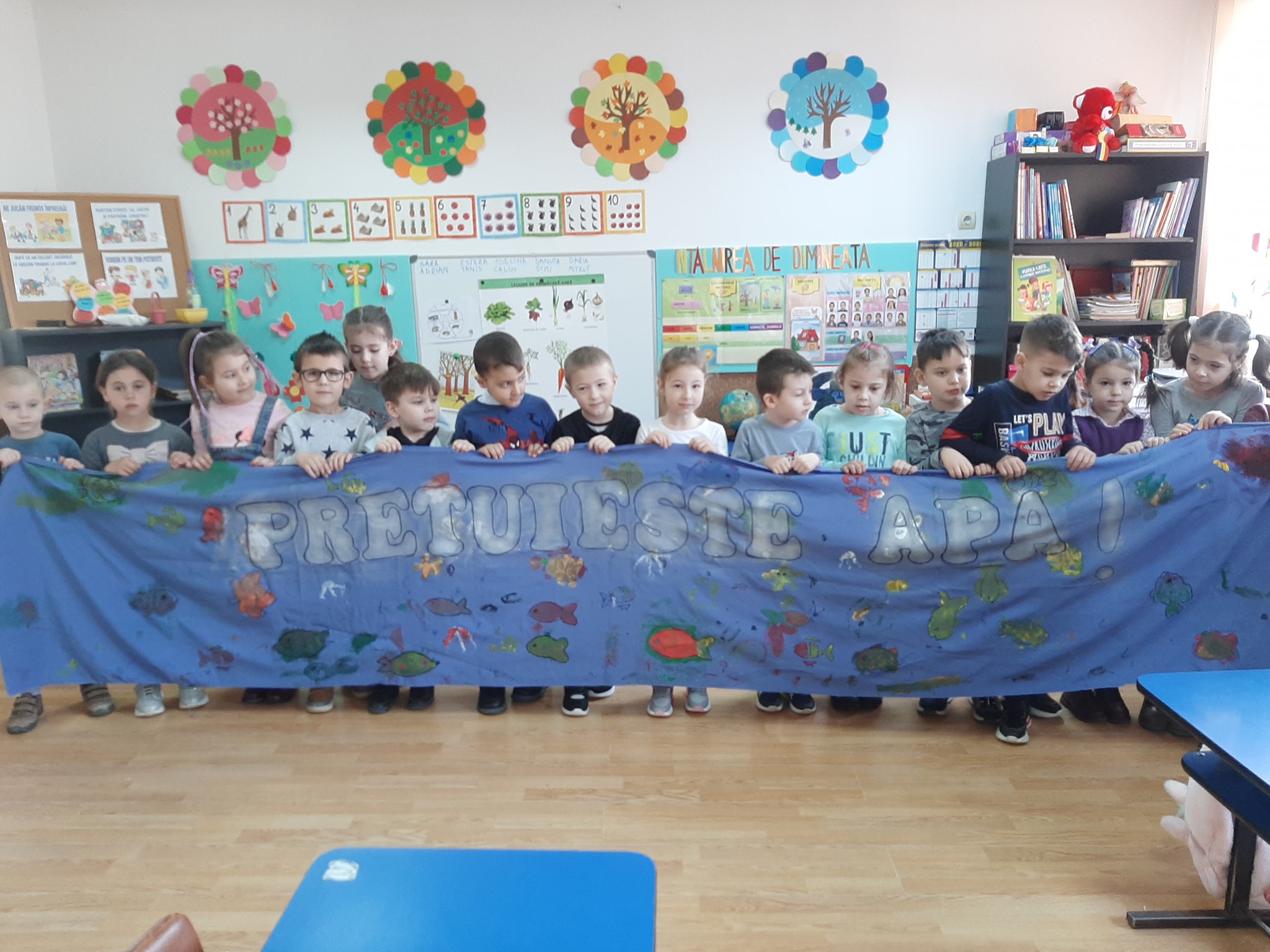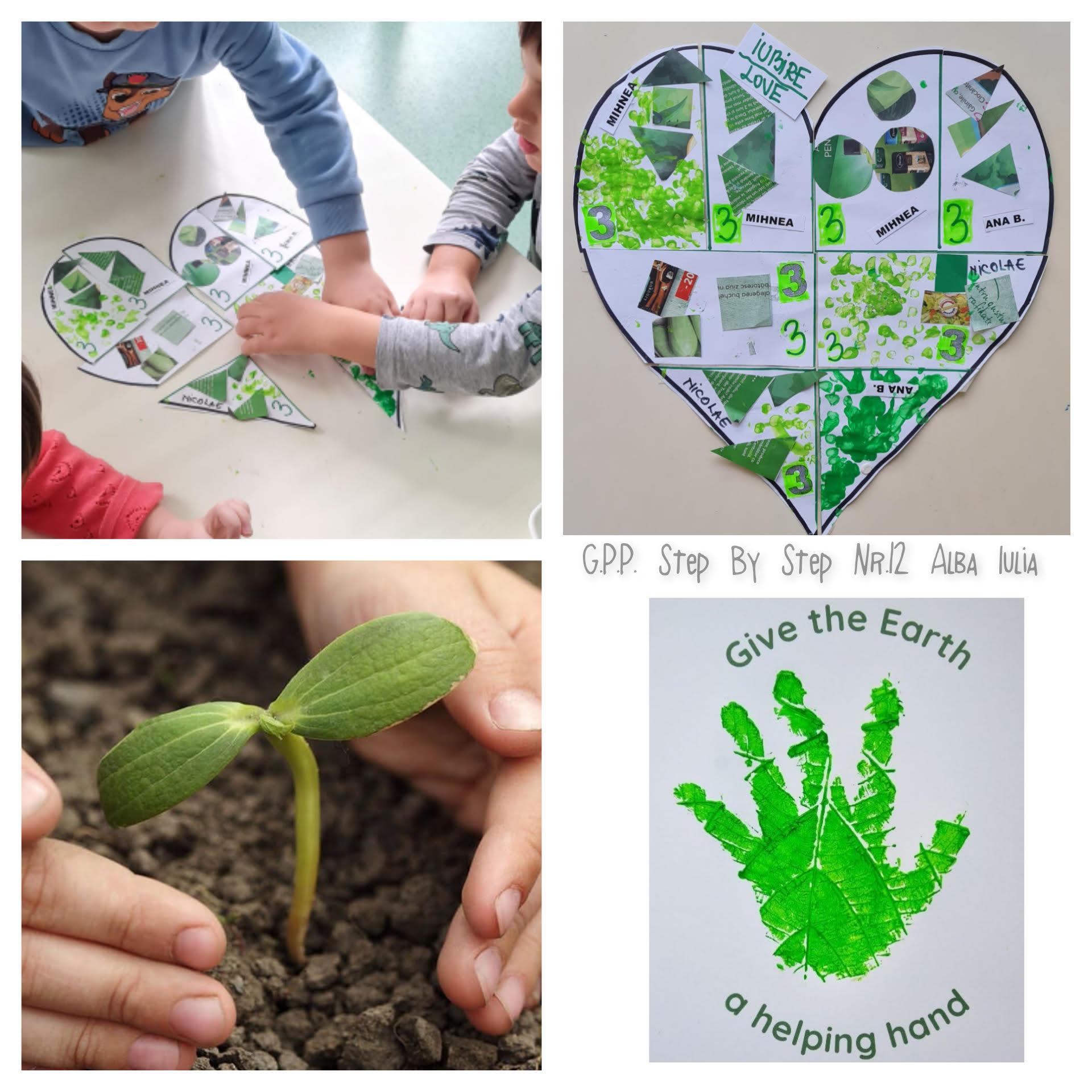How do we turn environmentally responsible gestures into lifelong habits? How do we motivate teachers and young people to go out there and make their communities „greener”? How do we make caring for the Planet a fundamental value, something that shapes our very definition of what „normal” should be?
In 2021, as we were celebrating the Recycling Patrol’s 10th anniversary, these questions lead us to try the most ambitious project. After spending the last 10 years encouraging thousands of schools in Romania to adopt better habits towards the environment, we realized that a new “good-manners code” was emerging from their messages and activities, over the years.
THAT was the answer to all the questions above – a new code of conduct - THE GREEN MANNERS GUIDE that would make sustainable decisions just as natural as “Hello!” or “Thank you!”. After all, those rules we learn as children about what is „good” and „normal” in our relationships with other people inform our decisions throughout our lives. So why not try to expand those rules to include our relationship with the entire ecosystem?
Making of: Ideas gathered from children and teachers all over the country
From January to June 2021, we provided educational materials to teachers and called on them to put that knowledge into practice, with their students.
With our guidance, over 300 teachers and 7.000 pupils (3-18 y. o., from rural and urban areas all over Romania) participated. They worked with their communities to raise awareness and change habits in 10 important environmental areas, summed up as waste reduction (from plastic to e-waste) through freecycling, upcycling and recycling, food waste, water and energy waste, pollution, deforestation, and loss of biodiversity.
Everybody got involved.
Teachers and students provided valuable content by carrying out as volunteers: briefing sessions with members of the community, waste collection campaigns, cooking sessions to tackle food waste, re-designing school regulations for saving water and energy and reducing plastic waste, river cleaning, tree planting actions, etc. Hundreds of practical ideas poured from enthusiastic young volunteers who couldn’t wait to share their good deeds with the world. The kids were so proud to have their achievements included in this national collection of good practices in climate education.
200 to 1000 people from every school neighborhood participated in each of these activities. Parents supported their children and made changes in their homes for a more sustainable lifestyle. The Ministries of Education and of the Environment were partners in the project. 9 companies supported the Guide, as sponsors and content providers. The media covered the project extensively and 10 volunteer co-authors worked to write the e-book, giving the project the best part of their summer.

The Green Manners Guide was ready to launch by the end of September and had its „premiere” at the conference of The Romanian National Commission for UNESCO „Education without borders for sustainable development”.
Outcomes
The brand new free e-book tackles 10 hot topics on climate change and offers tips and tricks for a more sustainable lifestyle. However, the Guide is more than just another “how-to” book, as the recommendations it presents are real actions practiced by dozens of teams of teachers and kids, all over the country.
It fulfilled at least 3 goals:
Awareness. The communication process for the creation and promotion of the Guide, including communication with teachers, the activities and events implemented in schools and in the communities, the content published online and national media coverage reached over one million people in the country.
Skills development. Over 7.000 pupils developed their environmental awareness, critical and exploratory thinking, creativity, networking, and adaptability, to name only a few.
Changing behaviors – according to teachers’ reports, over 80% of the children involved adopted at least one sustainable habit they did not practice before. They collect selectively more kinds of waste, use less plastic packaging, save more water and energy, and prefer to buy environmentally friendly products.
We stimulated teachers, pupils, and parents to work together in a collaborative, socially inclusive manner. The teams included underprivileged children, and children with disabilities to emphasize the message that each and everyone has a role in fighting climate change and ensuring a sustainable future.
The approach was interdisciplinary as teachers from various specialties took part – natural sciences, biology, geography, civic education, math, humanities, and even foreign languages teachers found ways to talk about climate during their classes – like choosing environmental topics for translations or debates.
The goal was to encourage climate action, not just learning, therefore practical, hands-on pedagogy was the core of the challenge.
Until now, it has been downloaded by over 2.000 teachers and used for further educational activities.

A free ebook for teachers, children, teenagers, families, and organizations involved in fighting climate change
The Green Manners Guide by the Recycling Patrol stands for an innovative tool to widen the reach of climate education beyond the frontiers of the school into the mainframe of society. The project is not only the legacy of the first 10 years of the program, but it also marks the beginning of the new ambitious phase of the Recycling Patrol.
We are starting a national conversation about the values and principles on which we base our day-to-day life. The profound change of mind frame we need will take place when our definition of „proper behavior” will include not only our relationship with other people but also our relationship with the entire ecosystem.


What an achievement, congratulations for this work Ada Lungu . Could you specify the age target?
Thank you, Tremeur. I added the info in the description. Children between 3-18 years old gave us those wonderful examples.
Please log in or sign up to comment.